Watch for hidden salt
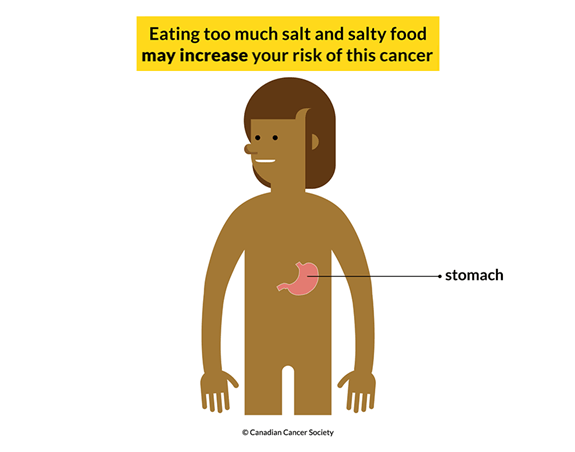
Too much salt may increase your risk of which type of cancer?
Eating too much salt and salty food may increase your risk of stomach cancer.

How much salt should we use?
Our bodies need some salt to help maintain our balance of water (hydration). Also, table salt is fortified with iodine, which you need for good health.
But much of the salt we eat comes from processed food such as breakfast cereals, soups, sauces, bread, ready-made meals and snack foods (where it can be listed as sodium). We also add salt to our food at the table or when cooking.
Canadians tend to eat more salt than they need. Keep reading for some tips to eat less salt.
5 tips to eat less salt
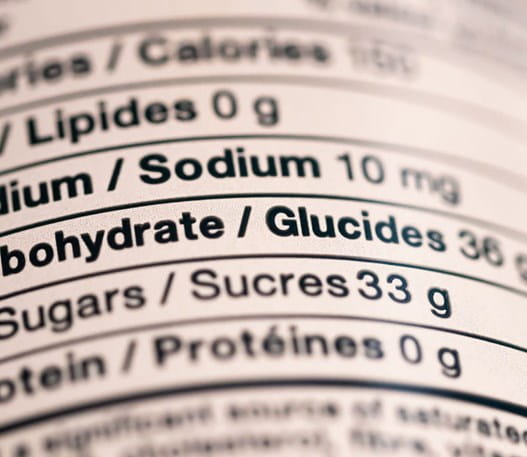
Read nutrition labels
Look for foods that have less than 5% DV (daily value) of sodium. You may be surprised to find that even foods like breakfast cereal contain salt. Choose foods that are labelled sodium-free, low-sodium, reduced (or less) sodium or unsalted. For example, buy unsalted nuts and low-sodium crackers.

Limit preserved, packaged and processed foods
Preserved foods like salted fish and meat and pickled foods are very high in salt. Packaged and processed foods may also be high in salt. Eat them in small amounts and only once in a while.
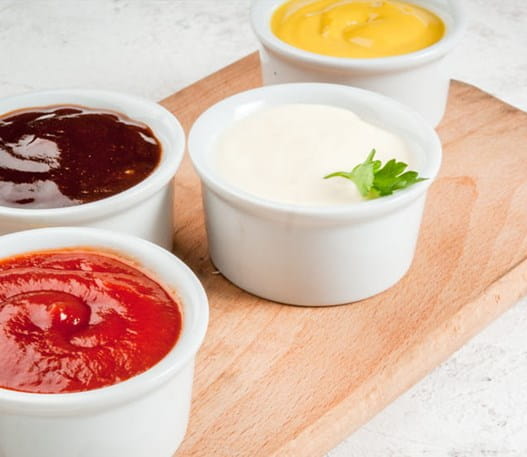
Cut down on sauces and condiments
Worcestershire and soy sauce are typically high in salt. Even condiments like ketchup contain a lot of salt.
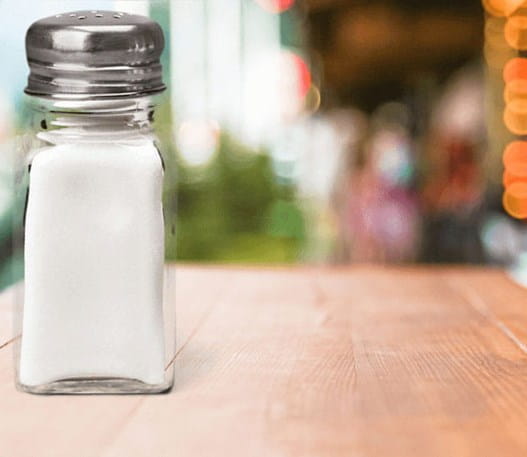
Remove the salt shaker from the table
If it’s not handy, you’ll be less likely to add extra. Always taste food first before choosing to add salt.
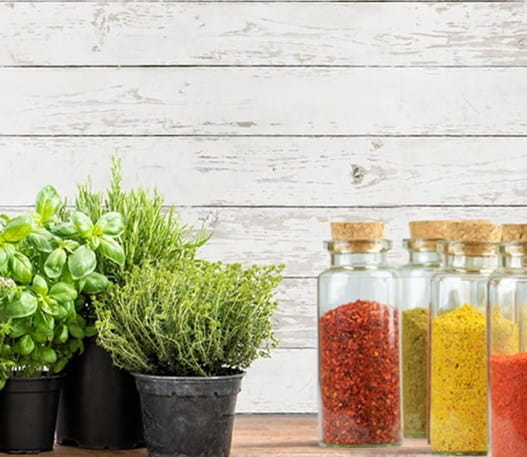
Remove or reduce salt in recipes whenever possible
For plenty of flavour, replace salt with herbs, spices and citrus.
How do I pair herbs and spices with different foods?
Keep these pairings handy.
